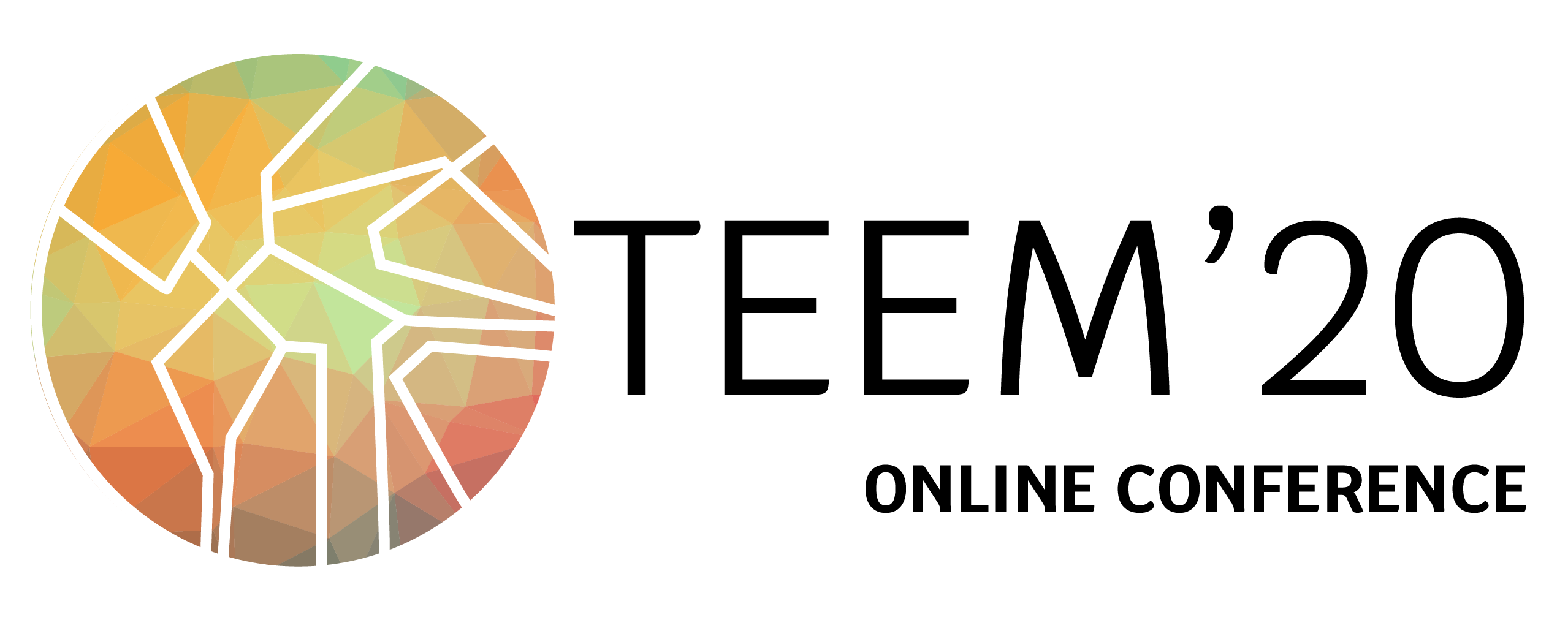Presentation
Diversity lack and gender inequality is a global problem in different sectors, but is especially visible in the context of the fields of Science, Technology, Engineering and Mathematics (STEM), especially at the university level and, therefore, labor market. Attracting representative people from all sectors of society, different cultures, disabilities, ethnic groups, gender or sexual orientation is one of the objectives that can be found in the strategic plans not only of large companies but also of organizations, institutions and governments. In this context, women are one of the groups with less representation in STEM, although they represent 50% of population.
Several studies show that women are underrepresented in STEM areas in higher education. In particular, the Trends in International Mathematics and Science Study comes out that only 30% of woman choose studying STEM careers. This problem is more pronounced at senior levels in both academic and professional contexts.
In the last decades, a large number of initiatives have emerged, at a regional, national and international level, whose main goal is to reduce the gender gap and promote diversity in STEM sectors from different points of view. This track aims to identify, share and valorize experiences, projects and best practices focused on promoting diversity and gender equality in STEM sectors, both academic and professional.
Topics
- Fostering diversity in STEM fields
- Attracting women to STEM studies
- Diversity and inclusion at university
- Teaching innovation related to gender and diversity
- Best practices about diversity in STEM
- Dissemination initiatives to promote diversity in STEM
- Gender studies in STEM
- Actions against prejudices and stereotypes
- Promoting women in scientific careers
- Gender perspective in education
- Ethics and gender in STEM
- Gender in research
- Co-education practices for STEM
Sponsored by
Special Issue
A selection of the papers of this track will be invited to participate in the special issue at the “Revista Internacional d e Estudios de Género y Teoría Feminista (CLEPSYDRA)“.
Track Scientific Committee
Alicia García-Holgado (University of Salamanca, Spain) – Chair
Carina S. González-González (University of La Laguna, Spain) – Chair
Aruquia Peixoto (CEFET/RJ, Brazil) – Chair
Amparo Camacho Díaz (Universidad del Norte, Colombia)
Ana María González Ramos (Universidad Autónoma de Barcelona, Spain)
Andrea Vázquez-Ingelmo (University of Salamanca, Spain)
Ángeles Domínguez Cuenta (Tecnológico de Monterrey, Mexico)
Anita Tabacco (Politecnico di Torino, Italy)
Adriana Gamazo (University of Salamanca, Spain)
Camino Fernández-Llamas (University of León, Spain)
Elvira Rincón-Flores (Tecnológico de Monterrey, Mexico)
Emilia López Iñesta (Universitat de València, Spain)
Francisco José García-Peñalvo (Universidad de Salamanca, Spain)
Germania del Rocio Rodriguez Morales (Universidad Técnica Particular de Loja, Ecuador)
José Carlos Sánchez-Prieto (University of Salamanca, Spain)
Juanjo Mena (University of Salamanca, Spain)
Lourdes Moreno (University Carlos III of Madrid, Spain)
Mª Cruz Sánchez-Gómez (University of Salamanca, Spain)
María Luisa Sein-Echaluce Lacleta (University of Zaragoza, Spain)
María Soledad Ramírez-Montoya (Tecnológico de Monterrey, Mexico)
Marta Martín del Pozo (University of Salamanca, Spain)
Noemí Merayo Álvarez (University of Valladolid, Spain)
Noura Aknin (Abdelmalek Essaâdi University, Morocoo)
Patricia Paderewski (University of Granada, Spain)
Patricia Sánchez-Holgado (University of Salamanca, Spain)
Pedro Plaza (UNED, Spain)
Pino Caballero-Gil (University of La Laguna, Spain)
Rosa Gil-Iranzo (University of Lleida, Spain)
Sara García Cuesta (University of La Laguna, Spain)
Sonia Verdugo-Castro (University of Salamanca, Spain)


